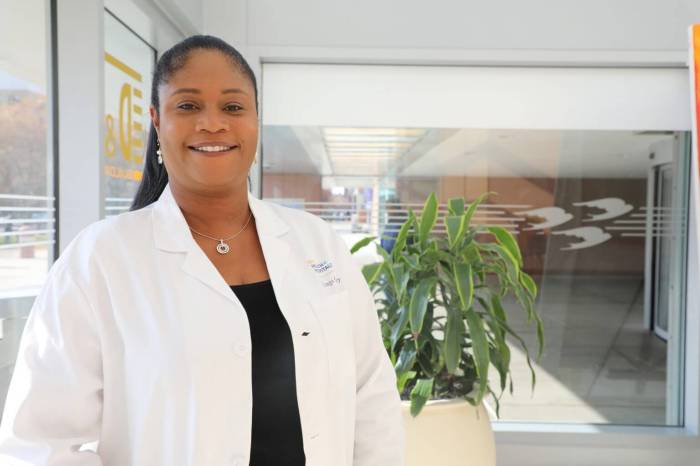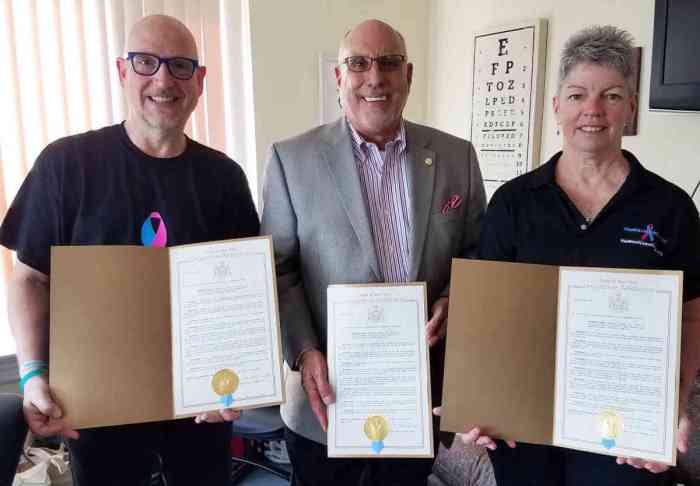A $10 million grant will help a team of Montefiore Einstein researchers learn more about the aggressive triple-negative breast cancer, a health issue that disproportionately impacts Black women.
Dr. Jonathan Backer, professor and chair of molecular pharmacology at Albert Einstein College of Medicine and associate director for shared resources at Montefiore Einstein Cancer Center, was recently granted the team science grant from the National Cancer Institute to investigate lung metastases caused by triple-negative breast cancer (TNBC) across five years.
TNBC is the most aggressive subtype of breast cancer, and it is more likely than other types to metastasize to the lung, according to Montefiore researchers. Incidence rates for TNBC are about twice as high among Black women than white women, according to a 2019 American Cancer Society publication. The paper says about 19% of breast cancers diagnosed in Black women are triple-negative, compared with 11% in Hispanics, 9% in whites, 6% in Asian Pacific Islanders and 5% in Native Americans and Alaska Natives. The disparate impact TNBC has on Black and Hispanic women is part of what makes the study relevant to the Bronx-based researchers, according to Backer.
Young women and those with a BRCA1 gene variant are also at higher risk of TNBC, according to the American Cancer Society. The disease accounts for about 10% of all breast cancers, according to the organization’s 2022-2024 facts and figures.
Backer’s project is part of a research initiative to study metastasis, the process in which cells from the primary cancer tumor spread to other parts of the body. His team of researchers will look at how tumor cells from the breast cross into the lung, and what allows them to grow there. This process, called lung metastasis, is more likely to result from TNBC than from other types of breast cancer, according to the Montefiore Einstein Cancer Center.
“What kills a person with breast cancer is not the primary tumor, that can be removed pretty easily by surgery,” Backer said in an interview with the Bronx Times. “The problem is that the tumor cells from the primary tumor spread to other regions of the body and that’s a process that’s called metastasis.”
The researchers will use specialized imaging techniques developed in recent years by Einstein scientists that allow them to see the metastasis process as it’s happening in mice through windows that will be surgically implanted into the creatures’ chests, which Backer called the “cutting edge” component of the project.
“The overall goal is, if we can define the steps that are important for tumor cells to enter the lung, then we can stop them,” he said. “So really, the overall goal is to identify new targets that could be addressed pharmacologically to try to prevent this from happening.”
While 77% of women who have TNBC are alive five years after diagnosis, that number plummets to 28% for metastatic breast cancer, according to the Cleveland Clinic Cancer Center. The five-year survival rate for breast cancer overall is 90%, and 86% for breast cancer that has spread to nearby areas, according to the cancer center.
The American Cancer Society estimates that 43,250 women in the U.S. will die from breast cancer in 2022. While breast cancer is the second leading cause of cancer death among Asian Pacific Islander, American Indian/Alaska Native and white women in the U.S. behind only lung cancer, it’s the leading cause of cancer death for Black and Hispanic women, while the latter demographics have lower lung cancer mortality rates, according to the American Cancer Society. Black women have worse survival rates across all stages and subtypes, according to the organization.
“We hope that with a lot of hard work and some luck and some insights, that we can define new targets that could be used to combat this disease,” Backer said, emphasizing that metastatic breast cancer is a major problem in the Bronx.
Reach Aliya Schneider at aschneider@schnepsmedia.com or (718) 260-4597. For more coverage, follow us on Twitter, Facebook and Instagram @bronxtimes






















